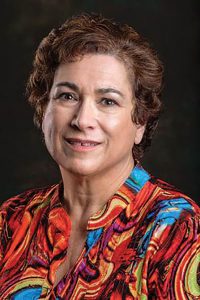 For 25 years, CJP has been convening a global community of peacebuilders for mutual learning. The widely publicized case of the Palestinian student coming to study at Harvard only to be turned away at Boston Logan International Airport is nothing new for CJP. For the past two years, a growing number of our admitted students and SPI participants have been denied visas.
For 25 years, CJP has been convening a global community of peacebuilders for mutual learning. The widely publicized case of the Palestinian student coming to study at Harvard only to be turned away at Boston Logan International Airport is nothing new for CJP. For the past two years, a growing number of our admitted students and SPI participants have been denied visas.
At SPI 2019, our US students were disappointed that they had fewer classmates from other countries. The cross-border learning is a highlight of the CJP experience. We just enrolled a new class with only two new students arriving on a student visa. Clearly, this challenges our ability to sustain our mission. And, ironically, this is happening just as we have grown our capacity to offer more scholarships to international students.
I firmly believe that when our plans and activities are radically disrupted, we are being called to rethink our assumptions and recognize problems we have not yet noticed that need our attention.
More than 70 million people have been displaced by decades of war, climate change and natural disasters. In spite of current limitations on refugee resettlement, many families from war zones have migrated to the U.S. Their communities need assistance with internal conflicts, trauma and broken relationships. Like Bishop Andudu (page 13), many members of those communities continue to lead peace efforts in their home countries. By expanding our understanding of an international student, we can continue supporting peacebuilders working on conflicts around the world.
Four hundred years after the first enslaved Africans arrived at Point Comfort in Virginia, it is long past time to reckon with the legacy of slavery and its aftermath as well as the genocide and displacement of the indigenous peoples of North America. Students like Talibah Aquil (page 14) challenge us to continue expanding our work on racial justice in the U.S. while others push us to address the violence that is woven into our criminal justice system (Caitlin Morneau, page 18). We are grateful for the many ways we continue to learn from people who are, in the words of John Paul Lederach, “colleagues masquerading as students.”
I invite you to join us on the journey to whatever is next for CJP. The world might change, but it will always need leaders committed to building peace rooted in authentic justice, human dignity and right relations among people.
Jayne S. Docherty
Executive Director